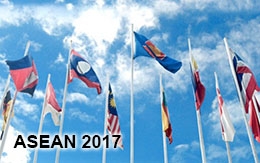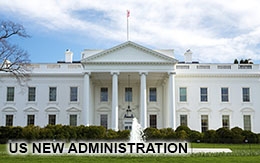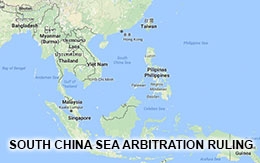Search result for "United States"
-
United States gets involved in the legal battle of diplomatic notes regarding the South China Sea
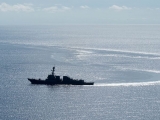 Category: International LawThe US communication added a voice to the common position of Vietnam, Malaysia, Philippines and Indonesia on consideration of UNCLOS as the sole legal basis for defining, in a comprehensive and exhaustive manner, the scope of their respective maritime entitlements in the South China Sea.
Category: International LawThe US communication added a voice to the common position of Vietnam, Malaysia, Philippines and Indonesia on consideration of UNCLOS as the sole legal basis for defining, in a comprehensive and exhaustive manner, the scope of their respective maritime entitlements in the South China Sea. -
Myanmar's response to maritime power projection by superpowers in Southeast Asia
 Category: PoliticsThe increasing strategic importance of maritime power projection has led to Southeast Asia, particularly Myanmar, taking measures to protect its interests and regional stability. Myanmar's response to maritime power projection by superpowers in Southeast Asia, particularly China and the United States, has been influenced by the country's geopolitical position, economic interests, and domestic considerations.
Category: PoliticsThe increasing strategic importance of maritime power projection has led to Southeast Asia, particularly Myanmar, taking measures to protect its interests and regional stability. Myanmar's response to maritime power projection by superpowers in Southeast Asia, particularly China and the United States, has been influenced by the country's geopolitical position, economic interests, and domestic considerations. -
The Rise of ‘Minilateralism’: The ASEAN and its Struggle for Centrality in the South China Sea
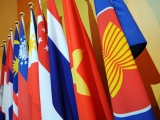 Category:The paper analyzes the intersection of three key currents in Asian geopolitics, namely (i) the emergence Association of Southeast Asian Nations (ASEAN) as a fulcrum of pan-regional integration, (ii) the evolution of South China Sea disputes as the preeminent geopolitical conflict of the 21st century, if not the site of the next great war; and, (iii) full commencement of the New Cold War between the United States (US) and China, dispensing with four decades of ‘constructive engagement’ vis-à-vis Beijing. Once seen as the harbinger of an open, inclusive and multilateralist order in the Asia-Pacific, the ASEAN has struggled to assert its ...
Category:The paper analyzes the intersection of three key currents in Asian geopolitics, namely (i) the emergence Association of Southeast Asian Nations (ASEAN) as a fulcrum of pan-regional integration, (ii) the evolution of South China Sea disputes as the preeminent geopolitical conflict of the 21st century, if not the site of the next great war; and, (iii) full commencement of the New Cold War between the United States (US) and China, dispensing with four decades of ‘constructive engagement’ vis-à-vis Beijing. Once seen as the harbinger of an open, inclusive and multilateralist order in the Asia-Pacific, the ASEAN has struggled to assert its ... -
Why Vanguard Bank and Why Now? Explaining Chinese Behavior in the South China Sea
Category: PoliticsDuring the course of my recent discussions with Vietnamese interlocutors, one question has recurred: after a period of prolonged quiet in Vietnam-China relations in the South China Sea (SCS), why has Beijing all of a sudden decided to take a stand at Vanguard Bank? And one could easily further ask why at the same time Beijing opened a new front by conducting a major military exercise at the Paracel Islands? I think there are several components to answering these questions. First, although Vanguard Bank represents the worst Vietnam-China tensions in the SCS since the Haiyang Shiyou 981 oil rig standoff in May ... -
U.S. Perspective on the South China Sea Order: Strategy Under the Trump Administration
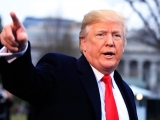 Category: PoliticsWhile much of the day-to-day work of managing U.S. diplomatic, economic, and security interactions in Asia seems to have continued unchanged, this belies a very significant difference in the Trump Administration’s apparent view of how the United States should engage with the world.
Category: PoliticsWhile much of the day-to-day work of managing U.S. diplomatic, economic, and security interactions in Asia seems to have continued unchanged, this belies a very significant difference in the Trump Administration’s apparent view of how the United States should engage with the world. -
The U.S. Naval Buildup and Asia under the Trump Administration
Category: US new AdministrationRecognizing the enduring importance of maritime power, President Donald Trump pledged to rebuild the U.S. armed forces in general and the navy in particular. As a result, in 2017, the United States is focused a new on international cooperation backed by strong naval power. -
National Interests and the Role of Major and Middle Powers in the South China Sea: Australia’s Cautiously Calibrated Approach
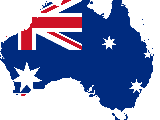 Category: Working PapersHowever vocally supportive Canberra is of the United States in the South China Sea, in an operational sense Australia has held back since Washington began its current freedom of navigation operations (FONOPs), in October 2015, shortly after Malcolm Turnbull took over as Prime Minister. Why is that so?
Category: Working PapersHowever vocally supportive Canberra is of the United States in the South China Sea, in an operational sense Australia has held back since Washington began its current freedom of navigation operations (FONOPs), in October 2015, shortly after Malcolm Turnbull took over as Prime Minister. Why is that so? -
Japan’s National Interests in the South China Sea: FON, the Rule of Law, and Nuclear Deterrence
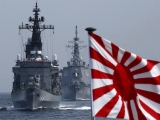 Category: Working PapersThe great geostrategist Nicholas Spykman once described the South China Sea as the ‘Asiatic Mediterranean’ to emphasise its importance in Asian geopolitics. Just as the Roman Empire sought control over the Mediterranean and the United States over the Caribbean in pursuit of regional dominance, China seeks dominance over the South China Sea, making it a ‘Chinese Caribbean.’
Category: Working PapersThe great geostrategist Nicholas Spykman once described the South China Sea as the ‘Asiatic Mediterranean’ to emphasise its importance in Asian geopolitics. Just as the Roman Empire sought control over the Mediterranean and the United States over the Caribbean in pursuit of regional dominance, China seeks dominance over the South China Sea, making it a ‘Chinese Caribbean.’ -
Storm clouds gather over South China Sea ahead of key U.N. ruling
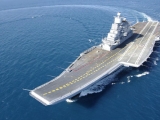 Category: PoliticsSigns that China may be contemplating another bout of island-building in the South China Sea ahead of an important U.N. ruling on the issue have provoked the United States to step up its vigilance in the region in recent days.
Category: PoliticsSigns that China may be contemplating another bout of island-building in the South China Sea ahead of an important U.N. ruling on the issue have provoked the United States to step up its vigilance in the region in recent days. -
China’s Maritime Rights Protection Leading Small Group—Shrouded In Secrecy
 Category: EconomyThe U.S. government takes no position on the territorial disputes in the Spratly Islands, but does take a strong position on what kinds of claims are made to the waters surrounding those features. The United States shares the concerns of regional states that the intentional ambiguity of China’s claims to vast stretches of water and seabed are a leading driver of tensions in the South China Sea. U.S.
Category: EconomyThe U.S. government takes no position on the territorial disputes in the Spratly Islands, but does take a strong position on what kinds of claims are made to the waters surrounding those features. The United States shares the concerns of regional states that the intentional ambiguity of China’s claims to vast stretches of water and seabed are a leading driver of tensions in the South China Sea. U.S. -
Asia Pacific Maritime Security Strategy RoundtableCategory: International LawThe U.S. government takes no position on the territorial disputes in the Spratly Islands, but does take a strong position on what kinds of claims are made to the waters surrounding those features. The United States shares the concerns of regional states that the intentional ambiguity of China’s claims to vast stretches of water and seabed are a leading driver of tensions in the South China Sea. U.S.
-
Chris Johnson Previews Xi Jinping's Visit
 Category: SecurityFON operations are not primarily about military deterrence or diplomatic messaging, though in a politically charged atmosphere like the South China Sea those play a role. At its root, FON operations are legal exercises to reinforce the United States’—and in this case the overwhelming majority of the international community’s—interpretations of international maritime law. T
Category: SecurityFON operations are not primarily about military deterrence or diplomatic messaging, though in a politically charged atmosphere like the South China Sea those play a role. At its root, FON operations are legal exercises to reinforce the United States’—and in this case the overwhelming majority of the international community’s—interpretations of international maritime law. T -
Japan is Forced to Open Trade to Foreigners
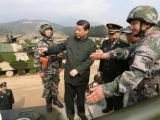 Category: PoliticsCommodore Matthew Perry uses "gunboat diplomacy" to open up Japan's ports to trade with the United States.This gradual opening to the West brings on a surge of economic, political, and technological reforms that lead indirectly to the overthrow of the Tokugawa Shogunate and to the return of imperial rule in a period now known as the Meiji Restoration.
Category: PoliticsCommodore Matthew Perry uses "gunboat diplomacy" to open up Japan's ports to trade with the United States.This gradual opening to the West brings on a surge of economic, political, and technological reforms that lead indirectly to the overthrow of the Tokugawa Shogunate and to the return of imperial rule in a period now known as the Meiji Restoration.
© 2016 Maritime Issues


